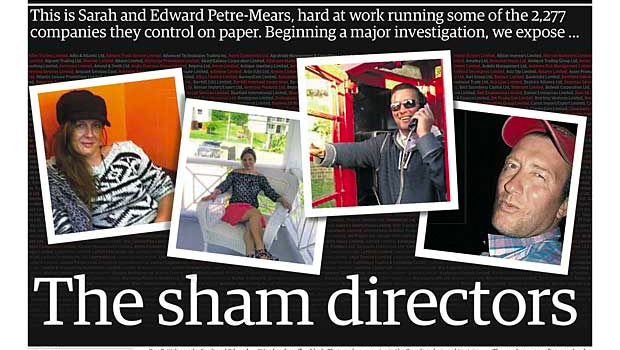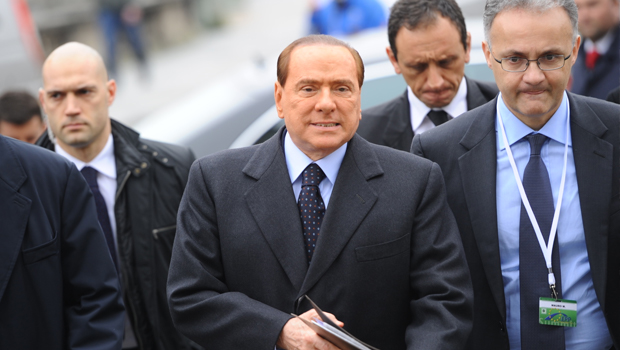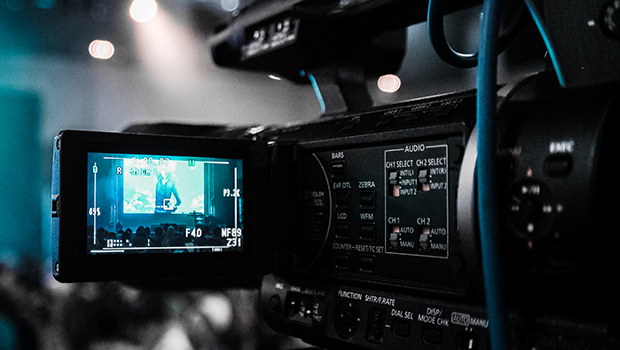The Guardian’s investigations editor David Leigh lists the essential skills to get a journalism job, the right mindset for investigative reporters, and the most important lesson he’s learned over the years.
This is the latest in our “Secrets of the Masters” series of interviews with great investigative reporters.
Share with us a story or investigation that you pursued and the impact it had.
Over the course of no less than 7 years, from 2003-10, whilst working for the Guardian in London, I and my colleague Rob Evans managed to uncover an organized worldwide network of secret payoffs by the arms giant BAE. We wrote literally hundreds of stories. The UK government did its best to cover up the truth. Nevertheless, we were able to disclose that the Saudi ruling family had received more than $1 billion in payoffs, with the connivance of the British prime minister, to lubricate sales of overpriced BAE warplanes to the desert regime. BAE eventually paid fines of $400m following a US department of justice corruption investigation. That was a good result!
What is the path that led you to investigative journalism in the first place?
Funnily enough, when I first got a news reporter job on a paper, my great ambition was to be a movie reviewer. Then I realized that in the Britain of the 1970s, there were many things that everyone knew but no-one felt able to print, particularly about the intelligence agencies and venerable British institutions such as the royal family. I started fighting free speech legal battles, and that led me into more and more investigative work.
What methods, techniques and tools have served you best as an investigative journalist?
I believe you don’t need gadgets and surveillance equipment. You just need the right mindset. It is a different mindset to that of a conventional news journalist or a feature writer. Mainly, because you have to be prepared to be disliked.
How has the increasing importance of digital and online media (especially the immediacy factor they emphasize) impacted the quality and practice of investigative journalism?
Well, I don’t do immediacy. I do slow journalism. I think the online market for journalism is separating into two distinct streams – one is quick news, and the other is exclusive investigations that use innovative online methods.
Have you employed a lot of data-based methods in your investigative reporting? If yes, what kinds of data do you use and how?
Yes, lots of data. The classic was the Wikileaks stories, where we learned how to process massive datasets of leaked material, both to be searchable by us for journalistic purposes, and then to be searchable by our audience for whatever they were interested in. In a recent series, about offshore purchases of London property, we built a dataset and turned it into an interactive map, using Google maps to throw up pictures of the actual houses, as well as their location. I think we often start off these days, by thinking about how we can present online data, which is arriving in ever-larger quantities.

Talk about your approach to stories. Is there anything unusual about the way you conduct your research or choose your themes?
Investigative journalism is very specific to the societies in which the journalists are embedded. And the topics of importance change over time. So in Britain, I started out being fascinated by the excessive secrecy that still surrounded the intelligence agencies in the last days of the Cold War. We wrote lots of investigations into spooks. Later, I became convinced that big corporations were a more important target than western governments. Nowadays, in a world of electronic surveillance, huge state databases, and the reappearance of state assassination and torture, I’ve rather swung back to thinking government behavior needs the most invigilation.
What do you consider some of the most important lessons you have learned over the years?
I’ve changed a bit. These days, I think collaboration between like-minded investigators is more valuable and interesting than mindless competition. Serious investigative journalism is valuable to democracy, yet we are becoming to some extent an endangered species.
What are the key elements that make an investigative story truly “click”? What do they have to have and what should they not be missing?
Well, if nobody reads it, you’ve wasted your time! Don’t be boring, just because you have to get the facts right. There’s generally a compelling human story in there somewhere, involving a victim.
What is the biggest single threat to investigative reporting and what advice can you give to others?
In Russia, Mexico, the Philippines, for example, the biggest threat may well be that you get shot. In the west, the big threat is that you don’t get paid. The business models that effectively subsidized investigative journalism in a newspaper or TV channel package, are disappearing because of the internet. My advice would be – try not to get shot. A dead journalist is a failed journalist. And in the west, my advice would be: turn yourself into a multimedia online operator who understands spreadsheets. It helps to get work.
What other tips would you give young, emerging, investigative reporters?
Don’t fall for conspiracy theories! The CIA probably didn’t kill President Kennedy. And the Apollo mission really did go to the moon.



